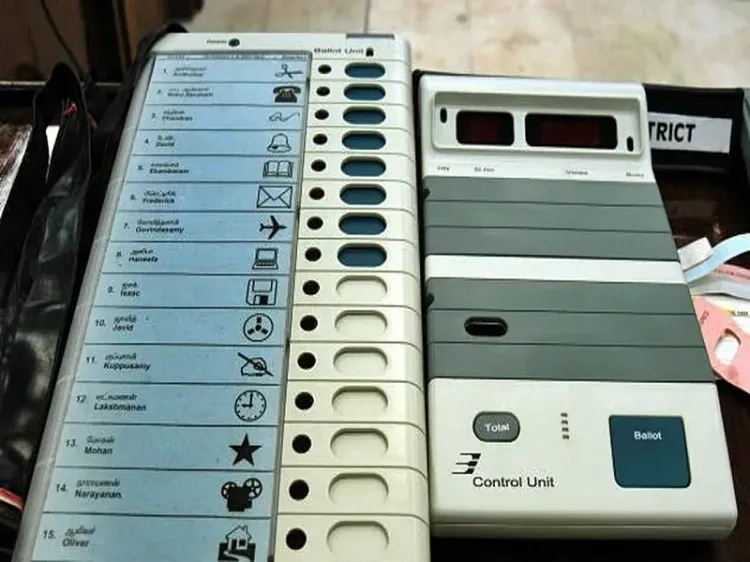Why Did the Delhi HC Dismiss the Plea to Replace EVMs?

Synopsis
Key Takeaways
- Delhi High Court upheld the use of EVMs.
- The Supreme Court has previously ruled on this matter.
- Concerns about EVM manipulability were addressed.
- Public trust in elections is crucial.
- Legal processes must not be misused.
New Delhi, Sep 24 (NationPress) The Delhi High Court has, on Wednesday, rejected a petition calling for the Election Commission of India (ECI) to substitute Electronic Voting Machines (EVMs) with traditional ballot papers in upcoming elections. The Bench, consisting of Chief Justice Devendra Kumar Upadhyaya and Justice Tushar Rao Gedela, noted that the Supreme Court has previously addressed this matter and dismissed the request to revert to ballot papers.
“The writ petition challenging the use of EVMs in the elections was dismissed by the Supreme Court. [I]n view of the aforementioned, we dismiss the writ petition,” stated the CJI Upadhyaya-led Bench, turning down the petition submitted by Upendra Nath Dalai.
Representing the Union government, Additional Solicitor General (ASG) Chetan Sharma argued that Dalai had previously faced criticism from the courts for making unfounded allegations.
“Nobody can misuse the legal system in this manner. The issue has already been resolved by the Supreme Court,” asserted ASG Sharma.
Last November, the Supreme Court rejected a public interest litigation (PIL) requesting that the ECI revert to the ballot system, citing concerns about the alleged manipulability of EVMs.
“When you lose, EVMs are tampered with; when you win, EVMs are fine,” the Supreme Court had remarked.
In April 2024, the Supreme Court dismissed multiple petitions demanding mandatory cross-verification of votes cast with Voter-Verifiable Paper Audit Trail (VVPAT) slips, stating that raising persistent doubts about EVMs, without any supporting evidence, could undermine public trust and diminish citizen participation in elections.
Justice Dipankar Datta, in his opinion, expressed that the request to revert to paper ballot systems revealed the true intention of the petitioning group (Association for Democratic Reforms) to discredit the EVM voting system and disrupt the ongoing electoral process by instilling unnecessary doubts among voters.
“I have significant reservations regarding the bona fides of the petitioning association when it seeks a return to the previous system. Regardless of past successes of the petitioning association in electoral reforms, their current suggestion seems unfounded,” stated Justice Datta.









